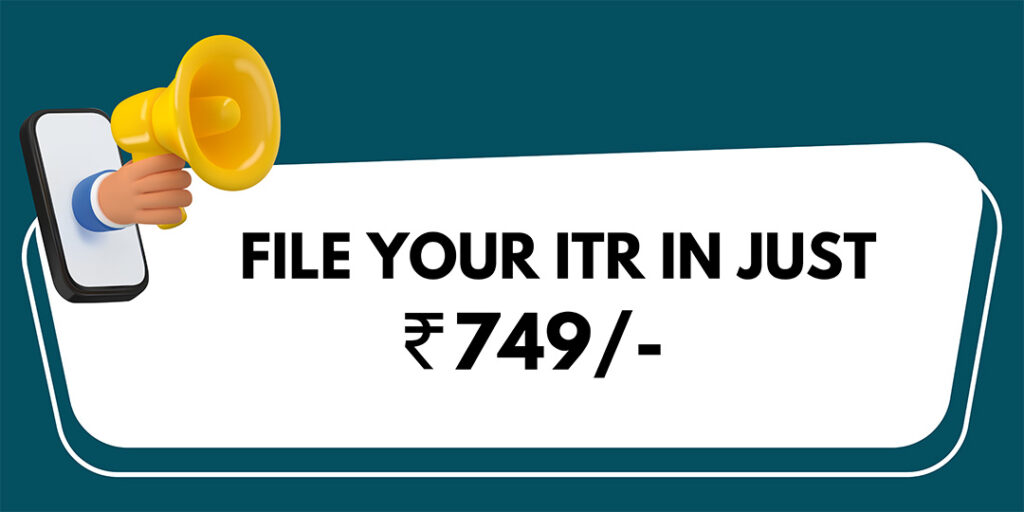The taxable income of an NRI solely relies on the residential status of the person in the concerned year. If the status is – Resident then the income, earned at national or international front, of the individual will be taxable in India, whereas, in the contrast case of NRI Status, the income that is earned in India will only be taxable in India. The examples of income earned in India includes the salary earned in India by doing a job or providing services in India, capital gains on transfer of ownership of assets that are situated in India, gain from a house property located in India, income from FDs or interest on savings bank account in India. Such incomes which are earned in India are taxable income for NRIs. However, the income earned in Foreign country or outside India is not taxable in India. Interest earned on an FCNR account and NRE account is exempted from tax. Interest on NRO accounts attracts tax from an NRI.
There are so many NRI families in today’s world where a member of the family is working outside the country but sends money to his family back in India or makes investment planning for their families or their future. This raises a major concern about NRI Income tax return in India. During every tax filing season, every tax-paying citizen of the country tries to find out the best way he/she can save the total amount of income tax payable on their hard-earned money. Therefore, the NRI Income tax return works completely in favor of the NRI citizens because it allows them to bring NRI income to India, but income which is earned outside India by an NRI is not taxed in India.
Simultaneously, there are various other types of income earned by citizens that are not taxed in India. Though, most NRIs have bank accounts such as non-resident external accounts or foreign currency non-resident accounts that are used by them in India. Indian residents, however, are liable to pay tax on their savings accounts which have an interest charged above INR 10,000, but NRI residents having NRO account are not liable to pay tax on the interest that is charged on their bank accounts. Similarly, investments made by an NRI citizen are also not taxed in India.
NRI taxation rules allow people with income earned outside India to invest in the country which adds to the economy of the country and therefore is a very favorable norm. This helps the government gain investments from NRI’s without spending money on non-residents. If there are any long-term or short-term gains received from the sale of assets in the country or investments made, then the gains will be taxed in India. So, retail income is taxed in India. If an NRI inherits the property or any other kind of asset from their parents or relative, that will not be taxed in India when the ownership is being transferred. But if there are gains generated from transferred assets such as rental income or income from the sale of the asset will be taxed for the NRI citizen. Under Section 54, 54ECand 54F there are some important benefits received from deduction of income tax that can be availed if someone invests the proceedings of any type of long term or short-term capital gains in India. But if an NRIs total gains which would include earnings from all sources such as rent, dividend, capital gains, investment income, etc. exceeds INR 2.5lakh then they must file for the process of taxes.
NRI citizens are not eligible to make a certain investment such as investing in National Saving Certificates (NSC), Senior Citizen Schemes, Post Office Time Deposits, or they are also not allowed to open new PPF accounts or extend their current PPF accounts. However, a lot of other saving instrument schemes such as home loans, life insurance, pension plan, and equity-linked saving schemes for mutual funds are still allowed for NRIs to invest in. An NRI can also claim the amount of tuition fee that is paid for his spouse or children in India. Under section 80D, health insurance policies or health checkups paid by an NRI for his/her parents or dependents that are in India is allowed.
As per the Income Tax Act of India, non-resident Indians must duly pay taxes to the Indian government. But the income tax rates for NRIs are not the same as that of Indian residents. The slabs of taxes for them are mainly based on the income they have earned and not all the other factors.
For the economy of the country, taxation is a very important aspect. Taxes are levied on various products and services that are included in the supply chain of the country. Taxation helps, improve the services and products that are availed by Indian citizens. Some of the commonly known forms of taxation are income tax, service tax, property tax, and tax that is deducted at source. But NRIs mainly must only pay income tax in India.
If an NRI falls under the jurisdiction of the income tax act of 1961, they must pay the entire taxable amount to the government. The income tax act of 1961, however, provides all the details under the category of NRI taxation, explaining on what they must pay taxes and how they must pay it. The NRI taxation category gives detailed information on all types of taxes such as income tax, property tax, wealth tax, but its focus is always income tax.
A person is certified as an NRI only if he checks all the guidelines and directives asserted for it. If an NRI is earning income outside India, then that income will not fall under the jurisdiction of the income tax act. However, if he/she earns an income in India through various forms such as capital gains from investment, mutual funds, sale of assets, etc and the amount of capital gains exceed the basic exemption limit that is determined in the income tax act, then they will have to file for a tax return.
As per the Income Tax Act, taxable income for NRIs is different from the income tax charged to residents of India, this difference lies between both of their tax slabs.
The main concerning points with NRI taxation is outlined as follows:
There are specific provisions that are explained in the Income Tax Act that tells how income tax is chargeable for a non-resident Indian. These provisions are as follows:
The above-mentioned rules on income tax for NRIs are subject to change depending on the direction and discretion of the Central Government and the Income Tax Department of the country.
Sometimes NRIs tend to pay more tax than what they are initially liable to pay because most of their incomes are subjected to heavy TDS (Tax Deductible at Source). Therefore, it is important to know the applicable deductions and exemptions provided by the government for NRI taxation.
The deductions that are allowed for an NRI are as follows:
Deduction is applicable from income generated from house property.
Interests that are paid on an education loan for the NRIs own higher education, or of his spouse and children or any dependent student is deductible to a period of 8years or until the interest is paid.
Donations made under section 80G
Interest on saving bank accounts up to the amount of INR 10,000.
Contact us today to explore how we can support you in fulfilling your taxation requirements.

Signup our newsletter to get update information, insight or news
Pretium quis fringilla purus a auctor nulla egestas eros sed consequat fusce. Lacinia litora interdum rutrum cursus lacus libero nec congue.

Mattis lorem blandit condimentum nostra tristique suspendisse nibh.

Mattis lorem blandit condimentum nostra tristique suspendisse nibh.